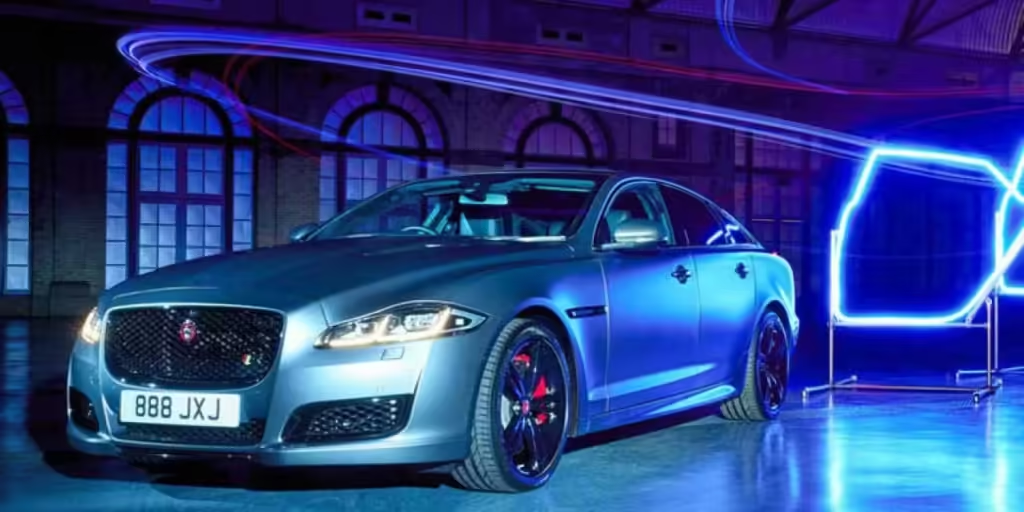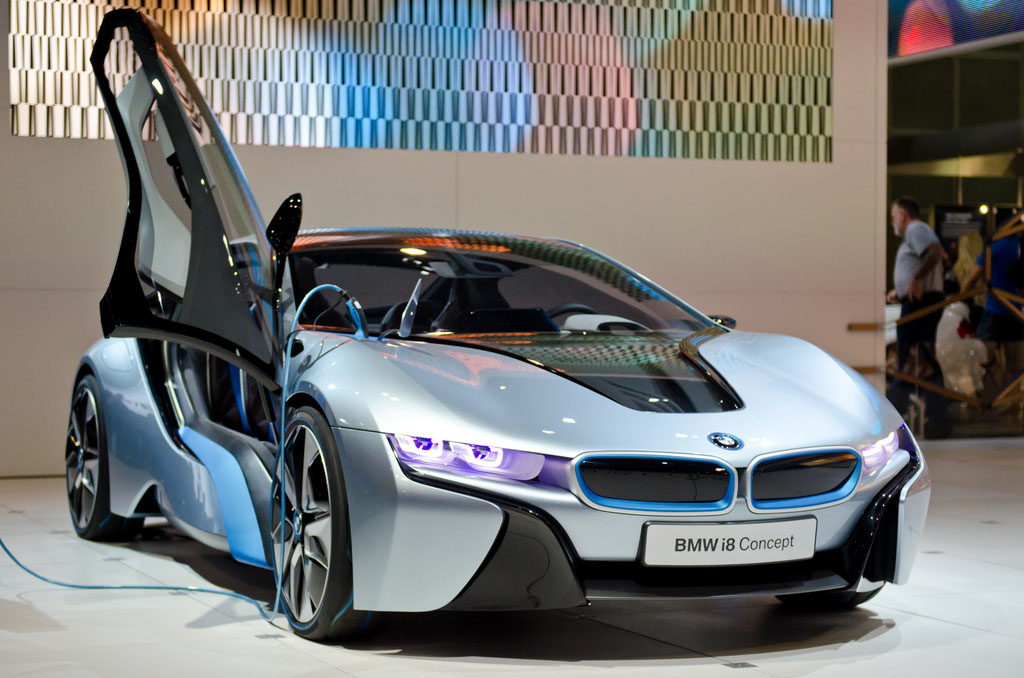The History, Dreams & Future Of Luxury Electric Vehicles (EV)
A luxurious electric automobile was not something that one could just go out and get a few years ago. They just weren’t real. This was altered in 2012 when the Tesla Model S was introduced. Since then, a number of luxury EVs with premium brands have entered the race, demonstrating what was possible when you combined speed, comfort, and elegance in an electric vehicle. These days, they are produced by the well-known European automakers Mercedes-Benz, BMW, and Audi. In fact, there are many of solutions available for the premium EV market today.
The world of high-end electric cars, or EVs, is an intriguing story of invention, ambition, and change. Luxury electric vehicles (EVs) are leading this transformation in the automobile industry’s shift to sustainability by combining luxury with environmental responsibility. Let’s investigate the fascinating past, audacious goals, and promising future of premium electric cars.
The History of Luxury EVs
Long some time recently luxury electric vehicles (EVs) got to be a normal locate on the streets, their journey begun. The cutting edge of car innovation within the late 19th and early 20th century was represented by electric vehicles. The Hungarian-built automobile, which got to be the primary electric car, had modest beginnings in 1828. Within the early 1900s, the electric cars such as the Detroit Electric Car Company’s model, which provided a smooth and noiseless ride.
But because gasoline engines had a longer range and required less time to refuel than electric vehicles, they eclipsed them when they were introduced in the 1920s. Electric vehicles were pushed to the shadows for many years due to the dominance of internal combustion engines.
With the release of the Tesla Roadster in 2008, the modern luxury EV revival got underway in full. Elon Musk’s Tesla company demonstrated that electric vehicles may be both highly functional and aesthetically pleasing. The Roadster’s success demonstrated that electric cars might compete with established luxury car brands, laying the basis for long term of luxury EVs.
The First Electric Cars:
The history of electric cars, or EVs, dates back to the late 1800s. The Detroit Electric Car Company and other pioneers like Thomas Parker produced early electric vehicles, which were renowned for their quiet and flawless running. These cars provided a substitute for the labor-intensive, noisy gasoline autos of the day.
Electric Vehicles: Parker, Mercedes, Rover:
Within the 1880s, Thomas Parker—an early proponent of electric vehicles—made striking progressions utilizing non-rechargeable battery-powered electric carriages. Meanwhile , early 20th-century electric car innovation research was conducted by Mercedes-Benz and Meanderer, which made a difference to shape the current state of performance and luxury in electric vehicles.
1897: An Exceptional Year:
A turning point in the history of electric vehicles occurred in 1897. It saw the debut of some of the first electric vehicles, paving the way for further advancements. Innovative developments and a rise in fascination with electric power defined this era.
The London Electric Cab, 1897:
The Hummingbird, London’s first electric taxi, made its debut in 1897. This innovative car established a standard for upcoming electric taxis and illustrated the possibilities of electric power for business transportation.
Designing the World's First Hybrid Car:
Car giants like Ford and Porsche have welcomed the electric revolution in recent years. The Taycan from Porsche and the Mach-E from Ford symbolize a modern age of high-performance electric cars that blend sustainability, extravagance, and innovation.
A critical accomplishment in car innovation was the creation of hybrid automobiles. The showcase for hybrid and electric vehicles was at first presented by the world’s to begin with hybrid vehicle, which ran on both gasoline and power. Porsche made the “Semper Vivus” (Latin for “always alive”), the primary hybrid vehicle in history, in 1900.
The First Electric and Hybrid Mercedes:
Mercedes-Benz was a pioneer within the field of electric vehicles, having debuted its first electric vehicles concurrently with hybrid versions. These pioneering electric and hybrid vehicles illustrated the brand’s commitment to sustainability and advancement.
Dreams of Luxury EVs

The goal of creating the ideal combination of state-of-the-art technology and unmatched comfort is the foundation of the luxury electric vehicle (EV) dream. This idea goes beyond just switching to electric power from internal combustion engines; it also aims to reinvent the act of driving.
Performance Meets Elegance:
The performance of luxury electric vehicles is intended to match or surpass that of their gasoline-powered counterparts. Electric motors’ fast control and smooth acceleration make for an invigorating and comfortable driving experience. With models just like the Taycan and I-PACE, car producers like Porsche and Jaguar have grasped this ambition by giving high-performance electric choices without sacrificing extravagance.
Sustainable Luxury:
The goal of luxury electric vehicles (EVs) includes a dedication to sustainability. Prominent producers are emphasizing energy efficiency, cutting their carbon footprint, and adopting eco-friendly materials. Brands such as Mercedes-Benz and BMW, for example, are making investments in environmentally aware materials and procedures to match their luxury offers.
Autonomous Driving:
Automated driving technology integration is an exciting new fantasy for luxury electric vehicles. The idea of a luxury vehicle that can drive itself improves safety and convenience while relieving drivers of the strain of having to operate the vehicle manually. Firms such as Tesla and Waymo are leading this field, imagining a time when high-end cars provide both outstanding comfort and self-driving capabilities.
The Future of Luxury EVs

The EV Revolution:
A noteworthy change within the car sector is brought almost by the electric vehicle revolution. Electric vehicles (EVs) are revolutionizing our understanding of mobility and environmental responsibility due to progresses in battery technologies, performance, and sustainability.
Seeing Ahead for the Electric Vehicle:
The electric car industry is anticipated to proceed developing and enhancing within the future. The upcoming era of extravagance electric vehicles will be affected by developing technologies, expanded infrastructure for charging, and changing customer tastes.
The future of luxury electric vehicles promises to be an exciting fusion of refinement and innovation. This future is probably going to be shaped by a few major developments and trends:
Advanced Battery Technology:
Luxury EVs of the future will depend heavily on battery technology. Longer range, quicker charging times, and more energy density are all promised by innovations like solid-state batteries. Businesses like Solid Power and QuantumScape are leading this research in an effort to increase the appeal and utility of electric vehicles.
Improved Infotainment and Connectivity:
Luxury electric vehicles will progressively come prepared with modern infotainment and network innovations. The in-car encounter will change as a result of the consistent integration of AI, 5G network, and advanced client interfacing with individual gadgets and brilliantly virtual assistants.
Enhanced Infrastructure for Charging:
The extension of the infrastructure for charging premium EVs is fundamental to their widespread adoption. In order to ease range anxiety and improve comfort for owners of luxury cars, future developments will include quicker and more successful charging alternatives as well as an extended network of charging stations.
Personalized experiences:
In luxury electric vehicles, personalization and customization will become more common. Customized driving experiences, such as adjustable suspension systems, driving modes, and interior settings, will be possible thanks to advanced technologies.
Environmental Impact and Circular Economy:
The luxury car sector will keep emphasizing the circular economy, sustainable production techniques, and recycling initiatives to lessen their negative effects on the environment. This strategy guarantees that high-end EVs meet strict environmental requirements without sacrificing performance or quality.
Visions of execution, natural sustainability and development have moved the progression of car innovation, as evidenced by the advancement of extravagance electric cars. The luxury electric vehicle (EV) showcase guarantees to supply astonishing encounters within the future by fusing cutting-edge innovation with rich comfort. Extravagance electric vehicles are balanced to totally change the car industry and bring the idea of a more advanced, environmentally friendly future to life.







